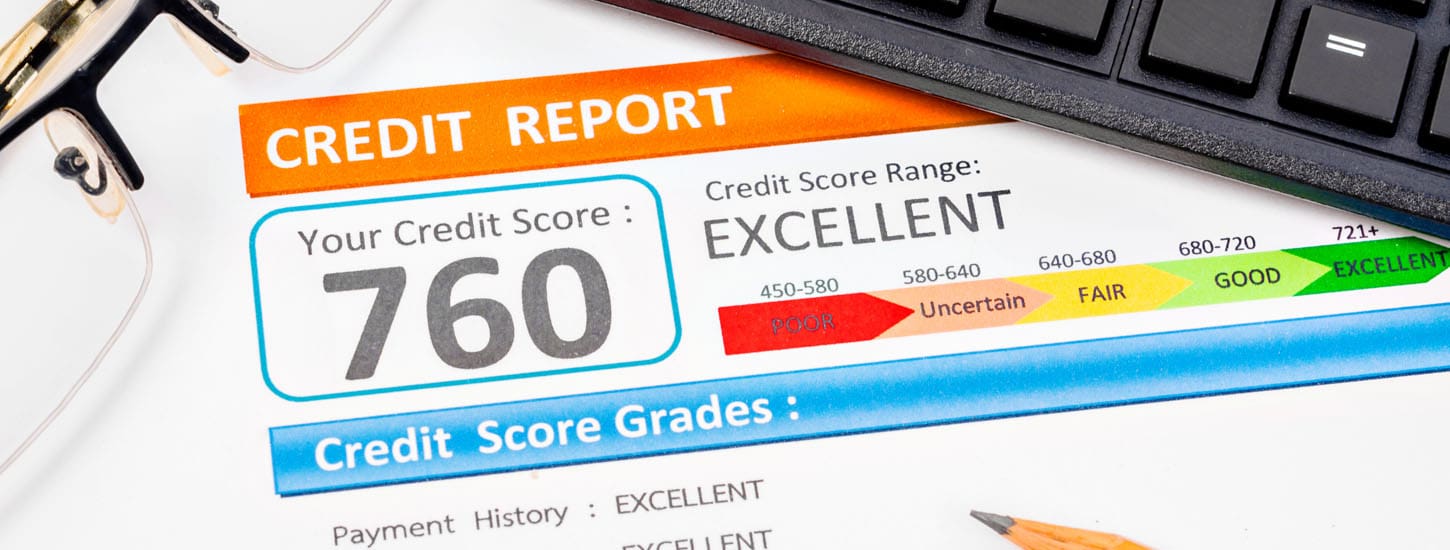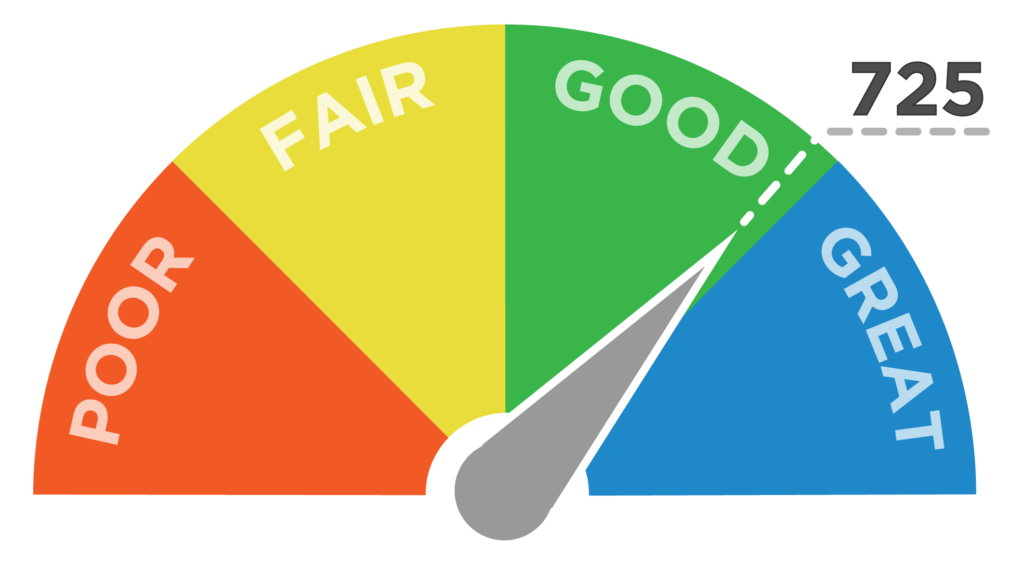This guide will help you know what a credit report and score is, how to review your credit report, tips on how you can improve your score and information regarding how to dispute discrepancies you may find on your credit profile.
What is a credit report and how is it used?
 How are we, the average Joe or Jane on the street, supposed to build (or rebuild) our credit when no one teaches what’s on our credit report to begin with? Well, here’s the answer:
How are we, the average Joe or Jane on the street, supposed to build (or rebuild) our credit when no one teaches what’s on our credit report to begin with? Well, here’s the answer:
- Contact information (no impact on credit score): It simply includes the names, addresses, employers, and, sometimes, marital statuses under which you have applied for credit in the past.
- Credit & Trade Lines: Details on the various lines of credit the consumer has had in the past 7-10 years, including balances, terms and their history of on-time payments.
- Public Records: List of court actions, including bankruptcies, judgments, tax liens and possibly evictions over the past 7-10 years
- Inquiries: List of creditors and businesses that have looked at your credit in the past 2 years. Those you authorize as part of an application for credit may impact your score (slightly), while others do not.
- Personal Statement (no impact on credit score): Up to 99 words the consumer may add to their own report. We generally suggest this only be used to clarify report errors.
Think of your credit report as your own personal file that holds information about your where you reside, what type of debt you owe on and what your payment history is with your lenders. Your credit report file will also include whether or not you’ve filed bankruptcy and if you’ve been sued to collect on a debt you owe. If you have mortgage or automobile payments those will show on your credit report as well.
Creditors, lenders, employers, insurance companies or property management firms may purchase a copy of your credit report in order to determine your creditworthiness. They will look for positive items such as an established credit history, high balance to available credit ratios (do you have access to credit but keep the balances down?), on time bill payment, what types of credit do you use and have you recently applied for new credit?
Importance of Credit Scores
What is credit? It is the ability to borrow based on the promise of repayment. Lately, everything seems to be based on a person’s credit score. Here are a few ways credit scores affect the price you pay for the following items:
- Personal Life Insurance: Having a bad credit score can drop you to the lower tiers causing you to pay a higher premium, though your health is still the most influential factor.
- Auto and Home Insurance: Poor credit can mean you are denied insurance completely or you will pay more. Before obtaining insurance from a company, ask them, “What percent of the premium will my credit score account for?”
- Employment: The trend is growing for companies to pull a credit report along with a background check. They want a stable employee. They are not allowed to ask you why you have a bad score, but you are allowed to tell them. Be prepared to discuss it. Employers can pull credit to promote or transfer an employee as well. Be open and willing to explain what happened.
- Housing: Property management companies will likely pull your credit report to determine approval or denial, though many do not take into account any medical collections. The larger the company the stricter they typically are. Small locally owned companies tend to get to know the individual.
- Loans: The higher the score, the better the interest rates you pay for standard bank loans (auto, home, signature). If your score is too low (mid to low 500s), you may be denied a loan completely or receive an interest rate in the high teens to twenties.
Check your credit report every year to check for fraud or misreporting that may be affecting your credit score. While 8 in 10 credit reports contain some sort of error, one in four contains such an error significant to cause you to be denied credit in spite of any other positive information.
As you can see, building and maintaining a good credit score can positively affect a major part of your life.
Have You Pulled Your Credit Report Lately?
Information found on credit reports and that three-digit number called a credit score have become such integral decision factors in our lives. Do you feel as though you are now judged by your credit report and credit score more than ever?
We have the opportunity—and the right—to see our credit reports and ensure that they are accurate, which is especially important before you apply for a loan. Here are some steps to taking advantage of the FACT Act to monitor your own credit:
- Pull your credit regularly at www.AnnualCreditReport.com. We are entitled to one credit report from each of the three bureaus every 12 months. That translates into three credit reports per year for FREE! If you really want to stay on top of your credit monitoring, pull one report every four months rather than pulling all three at once.
- Keep in mind that we are able to dispute inaccurate information. If you see something that just doesn’t look right, dispute it with the credit bureaus by going directly to their websites or by writing to them. If the item is negative, but it is indeed accurate, it will have to stay on the credit report until it is due to come off (generally 7 years for negative information).
- Anything a credit repair company can do legally, you can do for yourself. Just as you can pay someone to cook your meals, clean your house, and mow your lawn, you can also pay somebody to “clean up” your credit. Save yourself some (or a lot of) money by writing your own dispute letters.
- Keep a paper trail. One advantage of sending a dispute by mail is that you can include copies of supporting documentation and send them by certified mail. Always write down who you talk to when you talked to them, and any other pertinent information each time you speak with a creditor. It’s easy to get lost in large organizations with multiple international call centers.
Steps You Can Take to Build a Better Personal Credit Report

If something looks out of place make a note of it and begin fact-checking. You may find a discrepancy on your report and will want to take the appropriate steps to resolve the issue.
Follow the tips in the next section for success.
How to Dispute Discrepancies on Your Credit Report
There are a couple ways to go about filing a dispute with a consumer reporting agency. The recommended way is to contact the credit bureaus that have the error using the dispute option on their website:
Disputing the error online is the quickest and easiest way. See the pages linked above for more information.
You can also choose to place a phone call or write a letter disputing the information on your report with the appropriate credit bureau. You will want to specifically identify each issue you’ve found and include copies of supporting documents. Do not send the originals. Also, make sure you keep a copy of your dispute letter as well.
The second step would be to tell the creditor or entity that has reported information incorrectly within your file. Similar to step one, only send copies of supporting documents and make a copy of the letter and documents for you to keep.
If you have any questions, would like to discuss your financial challenges, or are just looking for advice, please call us at your convenience. As always, we are here to help and look forward to hearing from you.
Correcting Credit Report Errors from Defunct Creditors
Having taught nearly 500 personal finance classes since 2004 to over 8,000 individuals, it’s not often that I get a question about course topics that I haven’t heard before. I love it when I do, though, and that’s exactly what happened last week at a local housing authority. Here is the question:
What can I do if the title loan company to which I once owed money but have paid off in full has gone out of business but is still listed on my credit report with money owing? At first, it sounded completely new, but in the end, much of the method for dealing with this situation goes back to the typical process of correcting one’s credit report. Here are the suggestions that we, as a class, came up with:
- First, dispute the credit report error online through each of the three national credit bureaus.
- If that doesn’t work, call the company using the phone number listed on the credit report. Attempt to correct the problem directly with the title loan company’s representative.
- If these attempts fail, try looking up the company on the state’s Secretary of State’s business entity search website. The business listing should include, even if the company has gone out of business, an owner or board member to contact (likely a mailing address). Make contact with a request for information on how to address accounting errors.
These same suggestions apply to similar situations involving other defunct creditors listed on one’s credit report, including, for example, debt collectors, banks and credit unions.
If you run into any issues along the way or just need advice on where to begin or what to do next you are more than welcome to contact Debt Reduction Services at 1-866-688-3328 and speak to a Certified Consumer Credit Counselor. They can help you with your budget as well as help you identify areas that you can potentially save money. Be wary of credit repair or debt settlement as you don’t want to find your situation become worse by working with the wrong company.
For more information on how to improve your credit report visit consumer.ftc.gov for an abundance of resources that are aimed at protecting you, the consumer, as well as improving your overall financial picture.
Once you’ve ensured that the information is correct on your report you will want to review the primary factors that are used in determining your creditworthiness.
- Do you have collection debt that needs to be resolved?
- Do you pay your bills on time?
- Do you owe a high percentage of your credit limit on your accounts?
Those items all have a fairly heavy impact on your credit profile.
Begin setting goals and prepare a plan that allows you to resolve any issues identified. Perhaps you’ve found an old collection debt that you can make a priority to repay or maybe you’ve seen your balances maxing out. Regardless of the specific issue, set goals to remedy them as soon as possible. This is also a good opportunity to create a household budget and set immediate, short and long-term goals.
10 Tips for Strengthening Your Credit Score
The Guiding Principle behind each of the following tips is to manage and use your credit wisely: pay your debts according to the terms you have signed and avoid excessive debt. Read through the following tips for ideas on how you can personally increase your score and better your credit standing.
Tip #1: Pay all of your bills on time and in full every month. If you have secure access to the internet, consider paying your bills online to avoid mail delivery delays.
Tip #2: Get current on your credit accounts. If you’ve missed or been late on payments, find a way to get caught up. It will take six months of on-time payments, but negative effects of late or missed payments decrease over time.
Tip #3: Pay down the total balances owed on your credit accounts. Don’t just transfer money from one card to another. Make it a goal to avoid purchasing anything on a credit card you won’t pay off with the next credit card statement.
Tip #4: Don’t close accounts in good standing as a “quick fix.” Information from any account, whether closed or open, remains on your credit report for 7 years.
Tip #5: Don’t be afraid of Credit Counseling. In 1998, FICO dropped credit counseling as a factor influencing the credit scoring model, in part because we’ve learned that individuals actually become less of a credit risk when they receive credit counseling. (Michael Staten. Georgetown University. March 2002).
Tip #6: Avoid applying for a lot of new credit accounts within a short period, particularly if you have little or no credit history. See next tip.
Tip #7: Stay in contact with your creditor when troubles arise with an account. Work in good faith to pay as agreed, or consider arranging a modified payment plan. Accounts in collections or charged off will negatively affect your score for at least 7 years. When you struggle to make even the minimum payments, contact a reputable credit counseling organization such as Debt Reduction Services.
Tip #8: Know your credit limit and stay away from it. “Maxing out” your credit cards can hurt your credit score.
Tip #9: Live within an established budget and replace poor spending habits with disciplined spending. Balance your checkbook regularly to avoid bouncing checks.
Tip #10: Check your credit report at least annually for mistakes and inaccuracies. Go to www.AnnualCreditReport.com to print and download your free report for each of the three national credit reporting agencies. If you want your credit score as well, you will be required to pay for it. Though, you may have access to it through your bank’s online tools. Checking your own credit report in this way will not harm your credit.
Eight Additional Steps to Rebuild Your Credit Score
How to Rebuild Your Credit Rating
While on our Debt Consolidation Program, some may feel that building or repairing their credit without a major credit card is an insurmountable challenge. Others may not have any credit established or very poor credit and are looking where to begin to improve their situation.
The following are some simple steps that can contribute to better credit ratings. * The list is not exhaustive nor are the suggestions guaranteed to help you (state and federal regulators require that disclosure).
Watch our Director of Education, Todd Christensen, explain how you may begin building or rebuilding your credit score in this video:
Free and Easy Steps Can Help a Little
1. Ask a family member with good credit to add you as an authorized user to their current credit card account(s). You do not even have to use the card (or even ever see it). It has no impact on the family member’s rating, and their good account activity can help your own standing before creditors. Keep in mind though, that the family member is responsible for any charges made on the authorized user’s card.

3. Maintain checking and savings accounts: While not the case before 2004, banking practices (like bouncing checks) can now affect an individual’s credit score.
4. Consider having a parent or family member co-sign with you for unavoidable loans, such as a car. Be careful, though, not to compromise their finances. If you don’t pay, they will be held responsible.
Simple and No-cost or Low-cost Steps


More Expensive but Effective Steps
7. Finding a secured credit card (not a regular debit card) through a bank or credit union can help, although they usually come with high annual fees (sometimes even monthly fees). One benefit of a secured card is that you begin developing disciplined credit habits. Just make sure that you get it in writing that the card company will report your credit usage history to all three consumer reporting agencies.

Don’t Forget the Basics
Regardless of the above steps, the fundamentals of building (or rebuilding) credit remain in place:
- Make at least your minimum payments on time
- Pay down (or even better, off) your balance every month
- Don’t apply for too many accounts within a short period of time (1 to 2 a year is reasonable)
- Get current on accounts that are late
- Do not close accounts that are in good standing
These do not account for all possible ways to build or rebuild credit, but they provide a generally good strategy. If you have some ways of your own, please feel free to share.
Disclaimer: Score and modeling may vary from lender to lender. Because of the complicated nature of the statistical models and abundance of information on credit reports, these tips cannot be considered guarantees to improving your credit score.
About the Author
Author and Accredited Financial Counselor®, Todd R. Christensen, MIM, MA, is the Education Manager for Debt Reduction Services, a nationwide nonprofit financial wellness and credit counseling agency. Todd develops educational programs and produces materials that teach personal financial skills and responsibilities to all ages. He’s also the author of the book Everyday Money for Everyday People.












